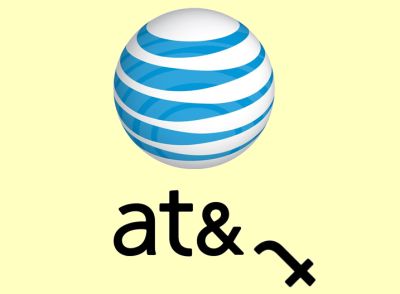

The US Department of Justice (DOJ) is accusing AT&T of knowing that a free programme set up to aid deaf and hard-of-hearing Americans was being abused, primarily by Nigerian thieves, costing the US government more than $16 million (£10m) paid to the carrier to support the programme.
The Associated Press (AP) reported that the Justice Department had filed the lawsuit, explaining that the federal government ordered all carriers to register their users, after it was discovered that callers from overseas were using the system to purchase goods with stolen credit cards and counterfeit checks.
AP reported that the DOJ lawsuit “said AT&T failed to adopt procedures to detect or prevent fraudulent users from registering. The government said [AT&T] feared its call volumes would drop once fraudulent users were prevented from calling on the system”.
US carriers are required to provide the IP Relay-based service under the Americans with Disabilities Act (ADA). The New York Times explains that AT&T and other carriers “employ intermediaries”, who act as the middle person, conversing between the hearing and hearing-impaired callers.
“AT&T has followed the FCC’s rules for providing IP Relay services for disabled customers and for seeking reimbursement for those services,” said AT&T spokesman Marty Richter. “As the FCC is aware, it is always possible for an individual to misuse IP Relay services, just as someone can misuse the postal system or an email account, but FCC rules require that we complete all calls by customers who identify themselves as disabled.”
The lawsuit follows from a whistle-blower case that came to court in Pittsburgh this month. It was originally filed in 2010 by Constance Lyttle, a former AT&T call centre worker. Should the DOJ recover funds, reports the AP, “Lyttle would receive a portion of it”.
The government is said to be seeking triple damages.
The ADA is a broad-reaching piece of legislation that has had a significant impact on the technology industry, stating that the inability for a person to obtain and use information easily is a form of discrimination. However, the IP Relay service programme, which the Federal Communications Commission in 2001 said carriers could be reimbursed for using, has for some time been an easy target for abuse.
In 2004, Broadband Reports said the system “has been ripe with abuse, from kids forcing operators to verbalise sexually graphic comments for amusement, to Nigerian scammers using the technology to con the disabled”.
It estimated that scams constituted 90 percent of the calls, “all paid for with your tax dollars”.
City Paper, out of Baltimore, also ran a story in 2004 describing the experience of an MCI call centre worker, Robert Grodevant, who estimated that 60 to 80 percent of the calls he dealt with were scams, lasting 30 to 90 minutes per call – versus legitimate calls, which were far shorter, with deaf users ordering a pizza or calling a friend.
“On one given day, I calculated that I purchased over $40,000 (£25,224) worth of laptops, inkjet cartridges and T-shirts, all shipped to Africa,” Grodevant told City Paper. “Lately, they have it shipped to a relative in the US, and they forward it to Africa.”
In the 2004 article, AT&T spokesman Roberto Cruz, when asked whether the carrier allows the scams as a way to increase revenue, said: “It’s antithetical to the way we would do business around here.” He called the scams “a growing trend” and an unavoidable fact of life.
Notable development for Meta, after appeal against 2021 WhatsApp privacy fine is backed by advisor…
First sign of shakeup under new CEO Lip-Bu Tan? Three Intel board members confirm they…
Trump's nominee for SEC Chairman, Paul Atkins, has pledged a “rational, coherent, and principled approach”…
After being 'retired' by Intel's board of directors, ex-CEO Pat Gelsinger has joined a VC…
President touts easing Chinese tariffs to facilitate TikTok sale, and also implements 25 percent tariff…
Copyright lawsuit against OpenAI and Microsoft from The New York Times and other newspapers can…